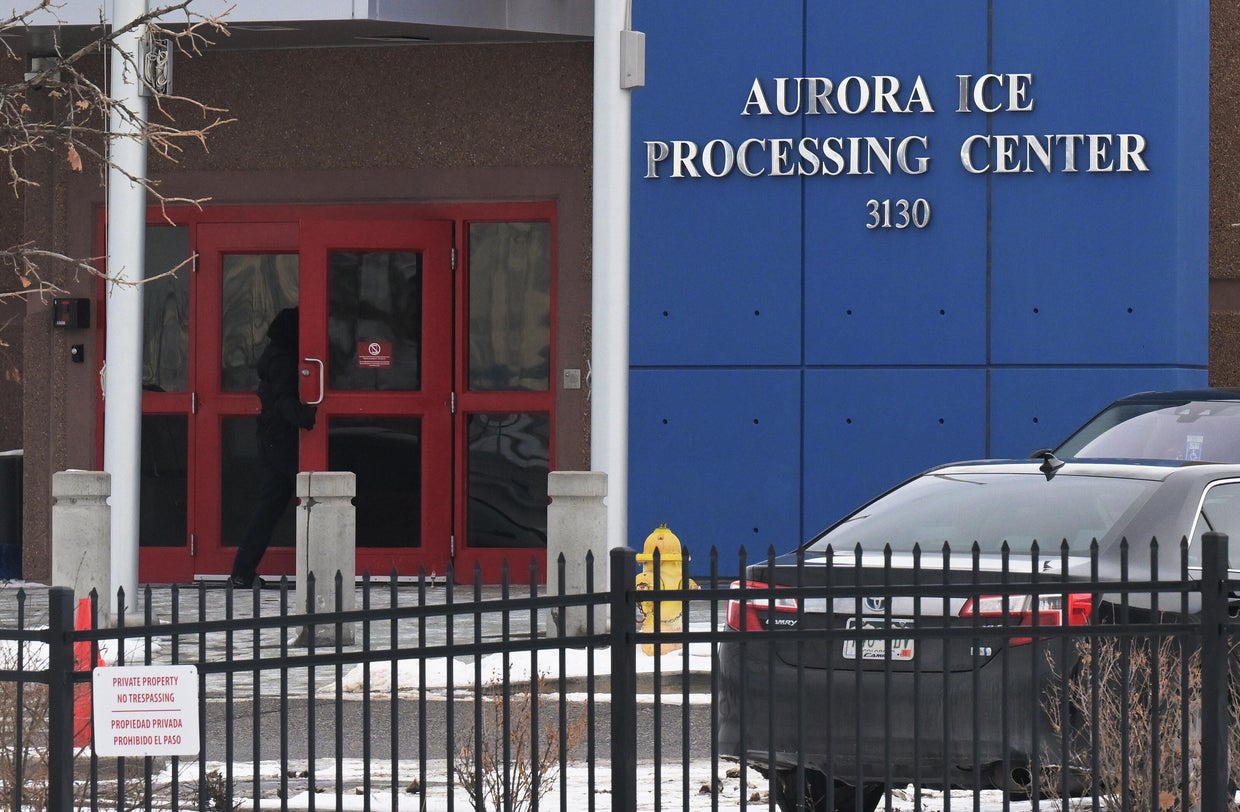Federal judge in Denver rules against Trump administration on deportations of men held by ICE in Aurora
A federal judge in Denver has ruled in favor of several immigrants' rights organizations and against the Trump administration concerning the administration's efforts to deport several men being held at a detention center in Aurora.
The ACLU and several other organizations sued President Trump to stop some deportations out of Colorado. Monday night, U.S. District Judge for the District of Colorado Charlotte Sweeney ruled in favor of those groups, temporarily blocking any deportation under the Alien Enemies Act of 1798.
"The order issued by the Court at ECF No. 10 prohibits the removal from this jurisdiction of Petitioners and the class they propose to represent; namely, 'All noncitizens in custody in the District of Colorado who were, are, or will be subject to the March 2025 Presidential Proclamation entitled Invocation of the Alien Enemies Act Regarding the Invasion of the United States by Tren de Aragua and/or its implementation,'" Sweeney wrote.
This order will remain in effect through at least April 21, when Sweeney will issue another order.
The suit stems from an order issued by a judge in the U.S. District Court for the Southern District of New York, which ruled that immigrants facing deportation are entitled to due process rights. That order came after the Trump administration invoked a seldom-used wartime law known as the Alien Enemies Act in an effort to deport people it claims are part of a criminal gang from Venezuela, Tren de Aragua.
The suit said that people being held at the Aurora ICE Processing Center are being held without charge and being denied due process or any way to fight the deportation proceedings in any court.
Last week, the U.S. Supreme Court ruled in favor of the U.S. Department of Justice in a 5-4 split in a separate but related case, but largely on the issue of jurisdiction, saying that the suit, filed in Washington, D.C., was filed in the wrong court, as that suit pertained to people being held in Texas.
In that same order, the Supreme Court did rule, however, that people subject to removal under the Alien Enemies Act were entitled to legal protections and the right to fight their detention in court.
"The notice must be afforded within a reasonable time and in such a manner as will allow them to actually seek habeas relief in the proper venue before such removal occurs," the court said.
The ACLU's lawsuit in Colorado was filed on behalf of two detainees at the Aurora ICE facility, "and persons similarly situated." The people being held in Colorado, the ACLU argues, are "identical, save for the District, to the class protected by the Temporary Restraining Orders issued" in the New York case.
It comes after reporting by CBS News and other organizations revealed the Trump administration has deported hundreds of people with no apparent criminal record to El Salvador to be held in a maximum-security prison designed to hold terrorism suspects. Some of those people, such as gay makeup artist Andry Hernandez Romero, had pending asylum cases in the U.S. Several other high-profile cases of deportations from elsewhere in the U.S. have raised questions about the reasons for those people's detention and claims by administration officials about those detainees' gang affiliations.
An ICE official didn't comment on the order, other than to say that the judge's ruling doesn't block all deportations, only those the administration is trying to deport specifically under the Alien Enemy Act.




